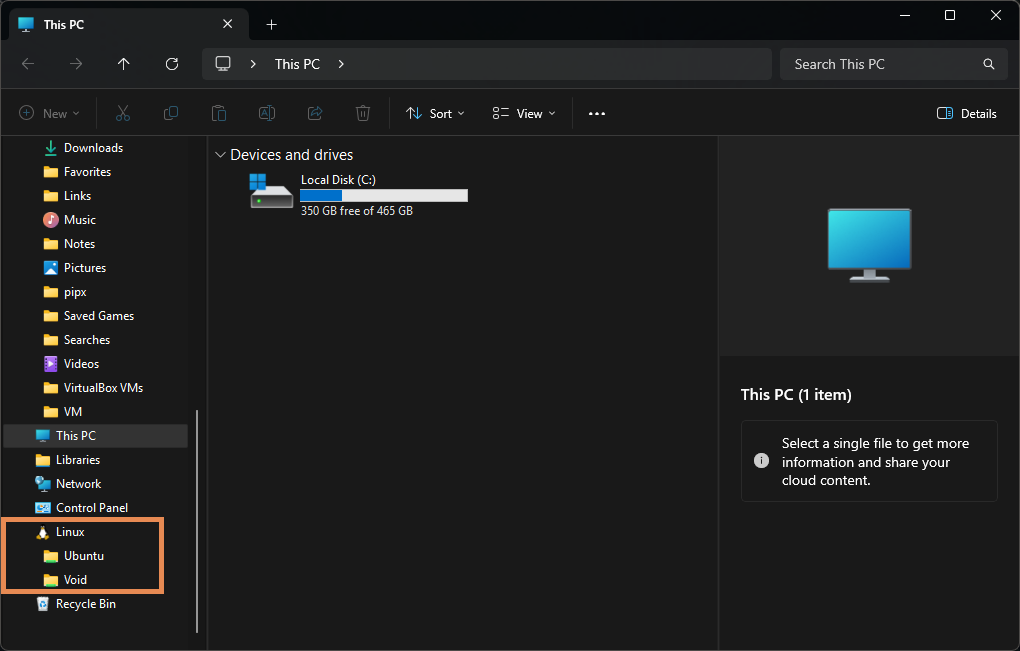Void Linux on Windows
I'd been running Void on baremetal on my Thinkpad x1 Carbon gen9 for several months now and finally got it to a place I was pretty happy with. However, I've just started a cybersecurity program in which a Windows machine is requisite so I've had to finally make the jump to Windows 11. I picked up a key for cheap via vip-urcdkey.com but I still want to run a Linux terminal quickly without spinning up a VM - this is where WSL comes in.
Installing WSL and Void
Run the terminal as admin and install WSL.
wsl --install
Once WSL is installed we can see what distros are available directly through winget.
wsl -l -o
We could choose a distribution from the list like arch linux and run wsl --install -d archlinux
Instead, we can provide our own tar file to install any distribution we like. We can download an up-to-date base install tar file from your chosen distro's website.
[!NOTE] we could also get a tar file from an already up-and-running system but that is beyond the scope of this quick how-to.
I've made a folder for VMs C:\Users\username\VM\WSL\Void
It's time to import our tar file in this format wsl --import <NameYourDistro> <InstallLocation> <TarFile>
For me, it's
wsl --import Void C:\Users\br0qn\VM\WSL\Void C:\Users\br0qn\Downloads\void-x86_64-ROOTFS-20250202.tar.xz
check to see if it was installed
wsl -l -v
run Void
wsl -d Void
You should now see a linux shell prompt
echo #SHELL
And if you open your File Explorer you should find a Linux drive with your WSL installations.

Setting Up Accounts
We've now got Void running though when you boot up Void, or any other distro, you'll default to the root user so it's time to set the root password and create your user & password.
First lets change to the bash shell and then set the root default shell to bash.
bash
chsh -s /bin/bash root
To set your root password
passwd
To create a user
useradd <YourUserName>
and set your user password
passwd <YourUserName>
Now we can give the new user sudo privileges by adding the user to the wheel group.
usermod -aG wheel <YourUserName>
and edit the sudoers file
EDITOR=vim visudo
uncomment the line # %wheel ALL=(ALL:ALL) ALL
Lets set this new user as the default user when we startup our Void instance
echo -e "[user]\ndefault=$YourUserName" > /etc/wsl.conf
Now we can restart the instance by exiting out back to the powershell prompt exit and again exit
wsl --terminate Void
wsl -d Void
su <yourusername>
Install Packages
Now we're on our way. Here I'll install some packages and configure the system with some dot files I pulled from my Void system.
Sync the repositories and update xbps
sudo xbps-install -Su
sudo xbps-install -u xbps
sudo xbps-install neovim grep ripgrep git openssl curl eza gcc
find some tui programs
Awesome Command Line Programs
Awesome TUIs
Terminal Trove
cli.club
cli-apps
[!IMPORTANT] Sources
Void Official Docs
Windows WSL Official Docs
Jake@Linux